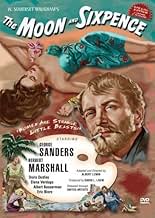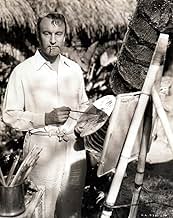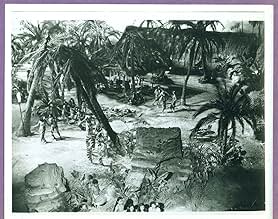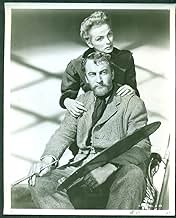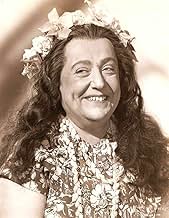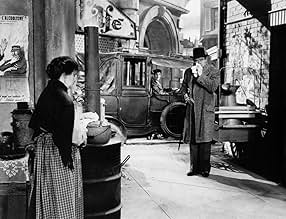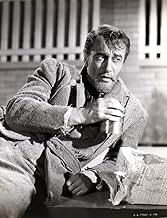George Sanders goes Gaughin in this film based on the Somerset Maugham novel about a well respected man who decides to drop out of society and paint to his hearts delight. Leaving a wife and children behind in England he first moves to Paris where he is befriended by a kindly successful hack painter who in return is re payed with ridicule and cuckoldry. George Strickland's dream is to get to Tahiti though and be done with Western society. He eventually does but at great final cost.
Sanders is perfectly cast as the insensitive and coldly indifferent Strickland who really just wants to be left alone. He asks for nothing but exploits kindness to its fullest when forced upon him, especially by the artist Stroeve. In a leading man of the era's hand the role would more than likely have been diluted and suffered but with Sanders you get a bored condescension and disdainful inflection like no other.
Unfortunately the rest of Sixpence lags a good distance behind Sander's spot on performance. Director Albert Lewin employs very little scope and camera movement with little attention payed to set design and lighting. The sepia tint of the film washes out in some scenes and was more than likely employed by Lewin to display Strickland's magnum opus at the end but even this disappoints.
Herbert Marshall is dry and drab as the narrator and the rest of the cast flat and stiff. Combined they lack the life and conviction to be found in Sander's performance which might have even soared further had Lewin applied the expressionistic flourishes to be found in his The Picture of Dorian Gray a far more successful picture with a less secure actor.

